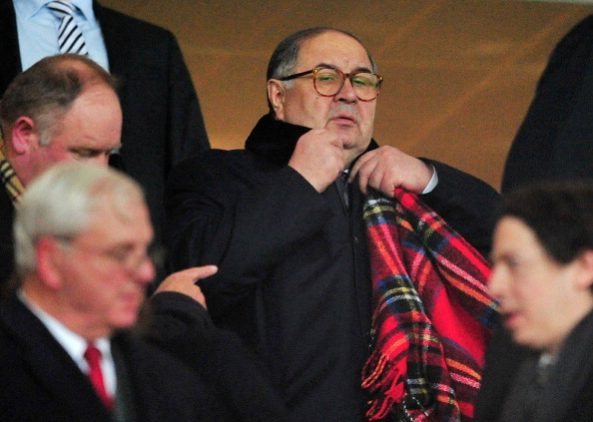Arsenal’s second largest shareholder, Alisher Usmanov, owns 30.4% of the club and is worth an estimated $16bn, so how did the 64-year-old make his money and are all those stories about him true?
Background
The Arsenal shareholder grew up in a small town in the Uzbek Soviet Socialist Republic.
His father was a state prosecutor, and the young Usmanov was a sabre fencer, competing with the Uzbek republic team. He then went on to study at the Moscow State Institute for International Relations.
After that he returned to Tashkent, and the Foreign Economic Association of the Soviet Peace Committee appointed him as a director. That’s according to The Guardian, who write that it’s “widely suspected that the Peace Committee was a front for the KGB”.
That’s something Usmanov denies any involvement in. He told The Guardian that the Soviet Peace Committee story was “based on misinformation”. He also denied serving in the KGB, or any Russian or Uzbek intelligence agency.
In 1980, Usmanov was convicted of fraud and embezzlement and sentenced to eight years in jail. He served six before his release. Later, the Uzbek supreme court ruled that the original conviction was unjust, and that evidence had been fabricated. The billionaire says this was “common judicial practice in the USSR”.
After his release from jail, the future Arsenal shareholder got involved in plastics. He discovered that with one ton of polymer he could make over 30,000 bags. The polymer cost 437 rubles, the bags sold for about one each.
Understandably, he saw an opportunity and got rich.
Since then, Usmanov has moved into a number of other business ventures. He has a 60% stake in USM Holdings in the metals and mining industry. He’s also co-owner of Russia’s second-largest telephone operator, MegaFon.
Kommersant
In recent years, Usmanov started investing in the media. He bought Russian newspaper Kommersant, which he still owns today.
In 2011, there were a series of protests against what some Russians believed was vote-rigging in parliamentary elections. Usmanov’s magazine “Kommersant Vlast” published an article titled “Victory of United ballot-stuffers” when Putin’s United Russia party won the election.
In the article, there was a picture of a ballot paper from the vote with “Putin, go f**k yourself” written on it, with the caption: “A correctly filled out ballot recognised as invalid.”
Usmanov sacked both the editor of the magazine and the head of the publisher’s holding company. He said the issue “bordered on petty hooliganism” and the head of the Kommersant publishing house also resigned.
There was a lot of backlash from journalists who felt they were no longer able to speak their minds. 60 journalists who stayed on at Kommersant later wrote a letter to Usmanov, saying (via BBC): “We are being compelled to be cowards, which is unworthy and unproductive…We regard [the editor’s] dismissal as an act of intimidation aimed at preventing any critical words about Vladimir Putin.
“We take particular offense at the attempt to present the dismissal of a man for his professional position as a fight for the purity of the Russian language. This is the same kind of fabrication that offended people at the election.”
Usmanov responded that he could understand the journalists standing up for their managers, but “Kommersant Vlast is a respectable, independent, sociopolitical publication”.
He rejected an outside offer to buy the publication on the same day.
Suppression of criticism
In 2007, the British ambassador for Uzbekistan claimed that Usmanov was “a gangster and racketeer who rightly did six years in jail”. He said the 64-year-old’s pardon came under instructions from an alleged drug trafficker.
In response, Usmanov’s legal team allegedly pressured the website to remove the article. They contacted independent blogs and websites asking them to remove all references to the allegations.
Later, Usmanov hired PR company RLM Finsbury, who allegedly edited his Wikipedia entry to remove any references to the above freedom of speech row. They also reportedly removed details of his overturned criminal conviction, and replaced these sections of the page with paragraphs about Usmanov’s charity work.
The company apologised and stated: “This was not done in the proper manner nor was this approach authorised by Mr Usmanov. We apologise for this and it will not happen again.”
This news was initially reported by The Times, but their article on the subject has also subsequently disappeared, and you can now only find references to the initial quotes and story in other publications and websites.
When articles disappear like this, it’s difficult to report on the way Usmanov made his fortune in the way we have for Stan Kroenke or Emirates Airlines. That won’t stop us digging, though.
